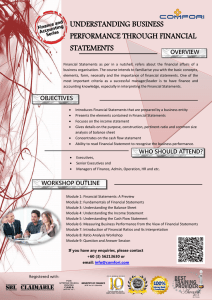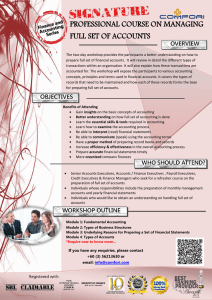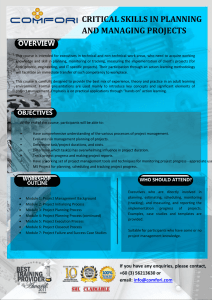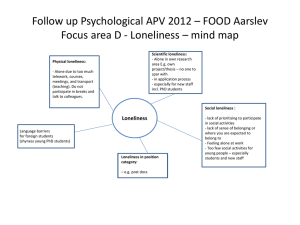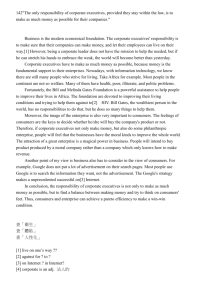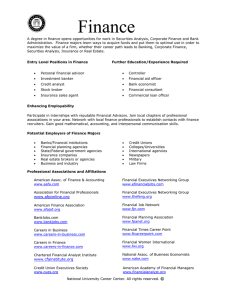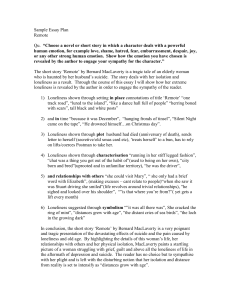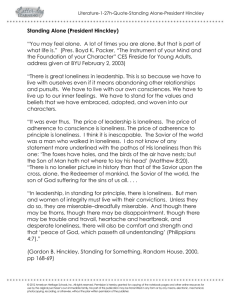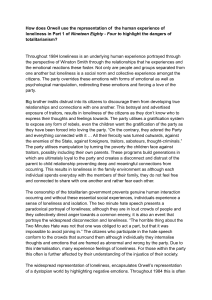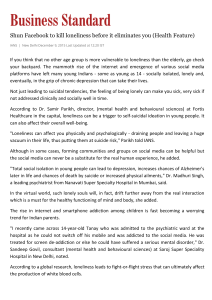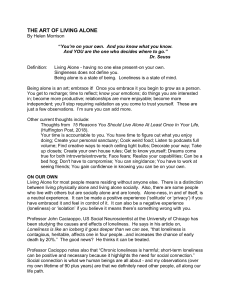Executive Directors’ Roundtable Sept 24, 2009
advertisement
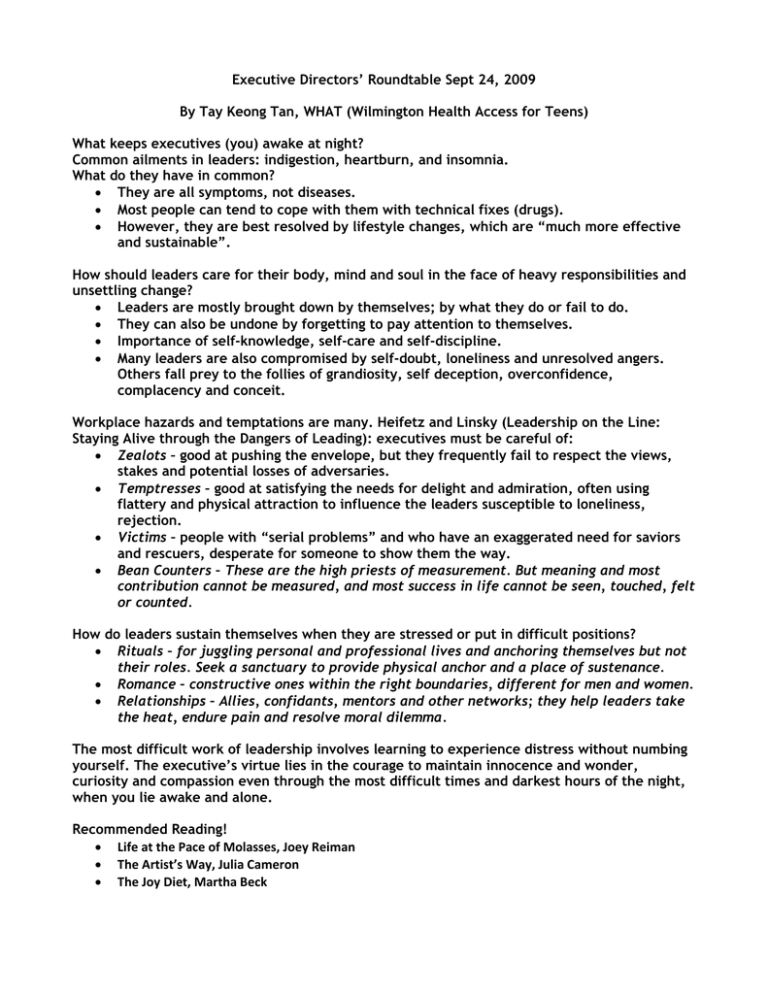
Executive Directors’ Roundtable Sept 24, 2009 By Tay Keong Tan, WHAT (Wilmington Health Access for Teens) What keeps executives (you) awake at night? Common ailments in leaders: indigestion, heartburn, and insomnia. What do they have in common? • They are all symptoms, not diseases. • Most people can tend to cope with them with technical fixes (drugs). • However, they are best resolved by lifestyle changes, which are “much more effective and sustainable”. How should leaders care for their body, mind and soul in the face of heavy responsibilities and unsettling change? • Leaders are mostly brought down by themselves; by what they do or fail to do. • They can also be undone by forgetting to pay attention to themselves. • Importance of self-knowledge, self-care and self-discipline. • Many leaders are also compromised by self-doubt, loneliness and unresolved angers. Others fall prey to the follies of grandiosity, self deception, overconfidence, complacency and conceit. Workplace hazards and temptations are many. Heifetz and Linsky (Leadership on the Line: Staying Alive through the Dangers of Leading): executives must be careful of: • Zealots – good at pushing the envelope, but they frequently fail to respect the views, stakes and potential losses of adversaries. • Temptresses – good at satisfying the needs for delight and admiration, often using flattery and physical attraction to influence the leaders susceptible to loneliness, rejection. • Victims – people with “serial problems” and who have an exaggerated need for saviors and rescuers, desperate for someone to show them the way. • Bean Counters – These are the high priests of measurement. But meaning and most contribution cannot be measured, and most success in life cannot be seen, touched, felt or counted. How do leaders sustain themselves when they are stressed or put in difficult positions? • Rituals – for juggling personal and professional lives and anchoring themselves but not their roles. Seek a sanctuary to provide physical anchor and a place of sustenance. • Romance – constructive ones within the right boundaries, different for men and women. • Relationships – Allies, confidants, mentors and other networks; they help leaders take the heat, endure pain and resolve moral dilemma. The most difficult work of leadership involves learning to experience distress without numbing yourself. The executive’s virtue lies in the courage to maintain innocence and wonder, curiosity and compassion even through the most difficult times and darkest hours of the night, when you lie awake and alone. Recommended Reading! • Life at the Pace of Molasses, Joey Reiman • The Artist’s Way, Julia Cameron • The Joy Diet, Martha Beck
